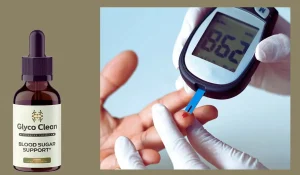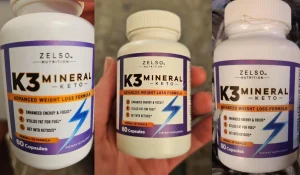Have you been feeling fatigued, dealing with muscle cramps, or experiencing an irregular heartbeat? While these symptoms can arise from various causes, one potential culprit is low potassium levels, also known as hypokalemia. But what if these signs point to something more serious, like cancer?
The relationship between low potassium and cancer is a topic that has piqued the interest of many, leaving some wondering, “Is low potassium a sign of cancer?”
In this comprehensive article, we’ll delve into the intricacies of this connection and provide you with valuable insights to better understand your health.
Imagine you’ve been experiencing persistent muscle weakness, tingling sensations, and a general lack of energy. These symptoms could easily be brushed off as side effects of a busy lifestyle or attributed to other common conditions.
However, what if they were harbingers of something more significant? This scenario raises an important question that many individuals grapple with: “Is low potassium a sign of cancer?”
Symptoms Of Low Potassium
Before exploring the potential link between low potassium and cancer, it’s crucial to understand the signs and symptoms of hypokalemia. Low potassium levels can manifest in various ways, including:
💠 Muscle cramps or weakness
💠 Fatigue and lethargy
💠 Constipation
💠 Irregular heartbeat or palpitations
💠 Numbness or tingling sensations
While these symptoms can arise from various underlying conditions, their presence should prompt further investigation to identify the root cause.

Is Low Potassium A Sign Of Cancer? How It Is Caused?
The relationship between low potassium and cancer is complex and multifaceted. While low potassium levels are not typically considered a direct sign of cancer, certain types of cancers and their treatments can contribute to potassium depletion in the body. Here’s a closer look at the potential connection:
1. Cancer-Related Causes of Low Potassium
💠 Certain cancers, such as stomach, colon, or pancreatic cancers, can cause excessive vomiting or diarrhea, leading to potassium loss.
💠 Cancers affecting the kidneys or adrenal glands may disrupt the body’s ability to regulate potassium levels properly.
💠 Cancer treatments like chemotherapy, radiation therapy, and certain medications can deplete potassium levels as a side effect.
2. Potassium Depletion and Cancer Progression
While low potassium is not a direct sign of cancer, some research suggests that potassium deficiency may contribute to cancer progression in certain cases.
Potassium plays a crucial role in cellular processes, and its depletion can potentially create an environment conducive to cancer cell growth and proliferation.
It’s important to note that the relationship between low potassium and cancer is not a one-way street. In many instances, low potassium levels may be a consequence of cancer or its treatment, rather than a direct cause or indicator of the disease.
Causes Of Low Potassium
To better understand the potential link between low potassium and cancer, it’s essential to explore the various causes of hypokalemia. Some common reasons for low potassium levels include:
💠 Excessive vomiting or diarrhea
💠 Certain medications (diuretics, corticosteroids, and some antibiotics)
💠 Kidney disorders
💠 Excessive sweating
💠 Inadequate dietary intake of potassium
While cancer can contribute to low potassium levels, it’s crucial to recognize that hypokalemia can arise from a wide range of underlying conditions, both benign and malignant.
Treatment For Low Potassium
If you suspect low potassium levels, it’s essential to seek medical attention for proper diagnosis and treatment. Your healthcare provider may recommend the following approaches:
1. Dietary Modifications
Increasing your intake of potassium-rich foods, such as bananas, spinach, sweet potatoes, and avocados, can help replenish potassium levels. However, dietary changes alone may not be sufficient in severe cases.
2. Potassium Supplements
Oral potassium supplements, such as potassium chloride or potassium gluconate, may be prescribed to restore potassium levels quickly and effectively.
3. Intravenous (IV) Potassium
In cases of severe hypokalemia or when oral supplementation is ineffective, your healthcare provider may recommend intravenous potassium therapy to rapidly correct the deficiency.
4. Addressing Underlying Causes
If cancer or its treatment is the root cause of low potassium, your healthcare team will develop a comprehensive plan to manage the cancer while simultaneously addressing the potassium imbalance.
Conclusion
While low potassium levels (hypokalemia) are not a direct sign of cancer, the relationship between the two cannot be dismissed entirely.
Certain cancers and their treatments can contribute to potassium depletion, and in some cases, chronic potassium deficiency may potentially influence cancer progression. However, it’s crucial to recognize that low potassium can arise from a multitude of underlying conditions, both benign and malignant.
If you are experiencing persistent symptoms of low potassium, such as muscle weakness, fatigue, or irregular heartbeat, it’s essential to consult with a healthcare professional.
They can perform the necessary tests to identify the underlying cause and develop an appropriate treatment plan tailored to your specific needs. Remember, early detection and proper management are key to maintaining optimal health and well-being.
References
- Health Direct (2024) Potassium deficiency Available Online at: https://www.healthdirect.gov.au/potassium-deficiency
- Medline Plus (n.d) Low blood potassium Available Online at: https://www.healthdirect.gov.au/potassium-deficiency







